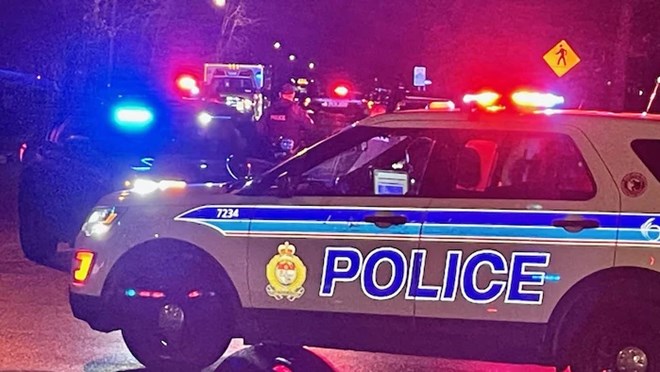
Wednesday September 11, 2024
By Aisha Sherazi

Ottawa Police are fighting a $2.5-million lawsuit lodged by five of its Somali officers who were secretly surveilled without explanation. Photo: S.B.
An Ottawa man I will refer to as “J” has wanted to be a police officer for as long as he can remember. It isn’t just the shiny badge, or the crisp uniform. Nor is it the opportunity for better pay and a decent pension on retirement. J’s brother fell into crime, and he has seen how heartbroken his parents are. “I wanted to make a difference, I did not want anyone to experience that pain. I wanted to fight crime head-on,” he says.
J applied time and time again, but his application never got further than filling out the extensive application form. He was never called for an interview. Never approached further than simply, “We have received your application.”
I ask him if he is worried that his chances have been reduced because he mentioned his brother when he applied. He shakes his head vehemently. “I’m not hiding anything. Part of being a cop is having integrity and being absolutely honest,” he says.
When he heard nothing from the Ottawa Police Service, he cast his net wider, applying to the Toronto Police Service and the Kingston Police Service. The results were the same.
J is engaged in work that reflects his passion for crime-fighting. He works two jobs: in a youth group home, and as a youth worker and behavioural counsellor with vulnerable youth. He keeps himself mentally and physically fit through martial arts in his spare time. His experiences clearly align with the Community Safety Wellbeing Model mandated by the province for police services in Ontario, including Ottawa .
J hasn’t engaged in any crime. He has chosen to distance himself from his brother and support his heartbroken parents through his own good work in the community. In a growing, changing population, his ability to speak Arabic might have been an asset to the police as well, and is in keeping with the newly launched Community Safety and Police Act that came into effect in April 2024, and whose principles include “The need to ensure that Police Services and Police Services Boards are representative of the communities they serve.”
The news this past week that five Somali officers and their family members were allegedly secretly wiretapped and surveilled by the Ottawa Police Service is deeply troubling. Some supposedly have loose family connections who are, possibly, engaged in gang-related activity. Two of the officers say they had no relationship with and had not even seen the cousins in question for years. To hear that they themselves were subjected to surveillance is disturbing, to say the least. The officers are now engaged in a lawsuit, which claims all the officers have “excellent” performance metrics and yet the force’s wiretaps and surveillance have left them “marked.”
Police officers are a tight-knit bunch themselves; they naturally look out for each other. Performing the job under a cloud of stress and suspicion cannot have been easy on them. Officers depend on each other for back-up in risky situations. To feel others are suspicious of you must impact your well-being significantly.
It has long been thought amongst visible minorities that it is almost impossible to get a foot in the door at the Ottawa Police Service. The Somali officers are all Canadian citizens and were invited, recruited and encouraged to join the force, the lawsuit says. Yet to hear that these officers were subjected to wiretaps and secret surveillance by their own implies the service thinks people are simply guilty by association. For those who hail from countries where such practices — wiretapping, being watched — are routine and commonplace, this does little to foster trust.
When biases and stereotypes creep into decisions, systemic discrimination is sure to follow. I have written about the double standard within the OPS on how officers of colour can be perceived compared to peers when it comes to wrongdoing. In the current situation, the officers themselves are not accused of wrongdoing; their family members (however distant) are. And because the materials are sealed, we do not know why the wiretaps were approved at all, leaving the officers themselves with no answers.
When I ask J why he fears using his real name for this article, he shrugs and replies, “It might ruin my chances of becoming an officer someday.” Clearly the aspirations of young, visible minorities aren’t completely dead, but complete trust is another thing altogether.
Aisha Sherazi is an Ottawa writer and formerly sat on the Ottawa Police Service’s COMPAC committee with one of the Somali officers in the lawsuit (who was a community member at the time).